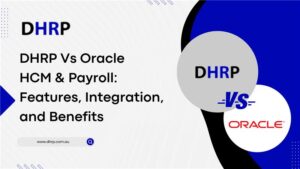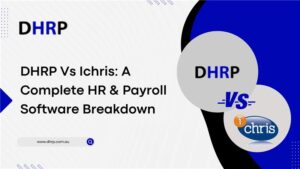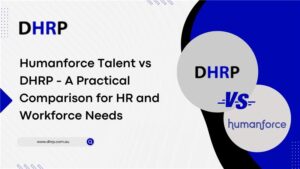Customers are smarter now, and their expectations are not merely something shaped by the market. In fact, they expect the best of Service Level Agreements (SLAs) and complete adherence to the terms. Businesses that have already figured it out stand at the front.
To help you with it, Microsoft’s Dynamics 365 Customer Service Hub, also referred to as Microsoft Dynamics 365 Customer Service, is ready to provide the most effective set of features.
What are the features? Let’s take a look.
Industry Shifts & Upcoming Enhancements in Dynamics 365 Customer Hub
The traditional Customer Service Hub is no longer available to new organisations with Enterprise licenses as of February 2025; instead, they are advised to switch to the more contemporary Copilot Service workspace. Access is still available to current users with different license types.
Updates from April to September 2025 concentrate on intelligent routing, generative AI in case and knowledge management, agent and supervisor Copilot experiences, and expedited administrative workflows.
Key Features & How Customer Service Hub improve SLA
Dynamics 365 Customer Service Hub SLA comes with a number of features. If used well, the SLAs will improve automatically:
1. Dashboards, Reporting & Analytics
Performance gaps, trends, and SLA adherence are visible through customizable reports and real-time dashboards. Supervisors have the ability to track historical SLA data through Dynamics 365 SLA tracking tools, keep an eye out for potential breaches, and promote continuous improvement.
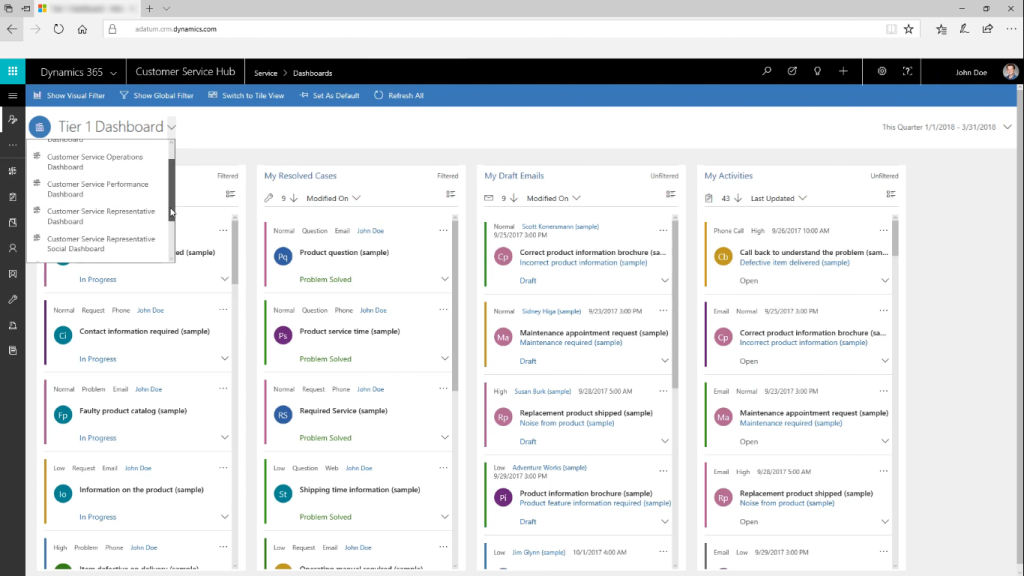
2. Service-Level Agreement (SLA) Configuration
A strong SLA setup is made possible by Dynamics 365, which defines metrics such as escalation thresholds, resolution time, and first response. SLAs are automatically linked to every case once they are set up, guaranteeing reliable tracking and accountability.
Agents can stay informed when SLAs are approaching deadlines or being violated with the use of visual indicators and alerts.
3. Enhanced SLAs with Pause/Resume Logic
Pause functionalities are part of advanced (enhanced) SLAs. In order to maintain fair and accurate SLA compliance metrics, timers can now automatically pause during non-working hours, holidays, or while awaiting customer response.
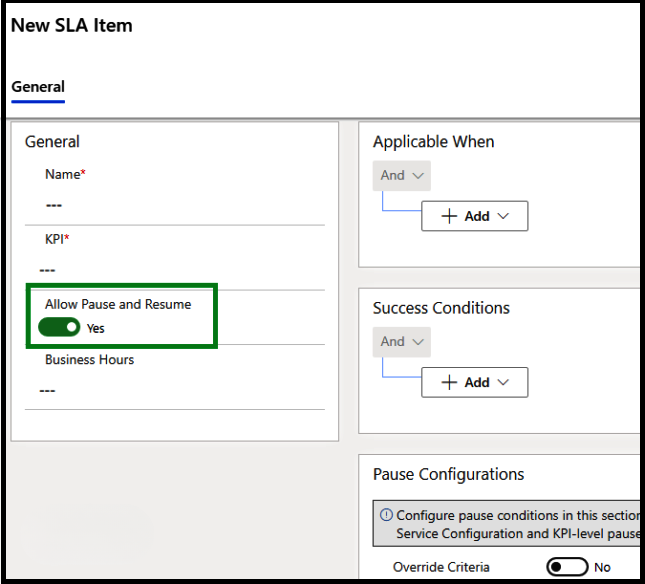
4. Customer Service Calendars & Business Hours
Customer service calendars that specify working days, hours, and holidays can be made and linked to SLAs. This guarantees that SLA timers don’t miscount non-operational hours and adhere to business schedules.
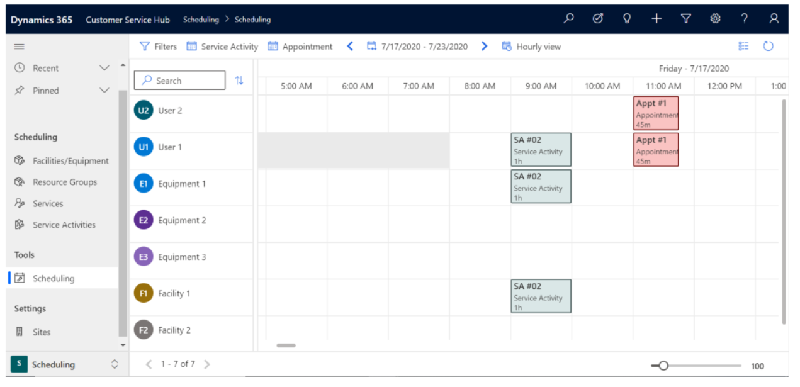
5. SLA Timers, Alerts & Actions
In accordance with the case states, built-in timers begin, pause, and stop automatically. Predefined actions, such as notifications, escalations, or workflow triggers, activate to keep the process alive and responsive when SLA conditions are met or exceeded.
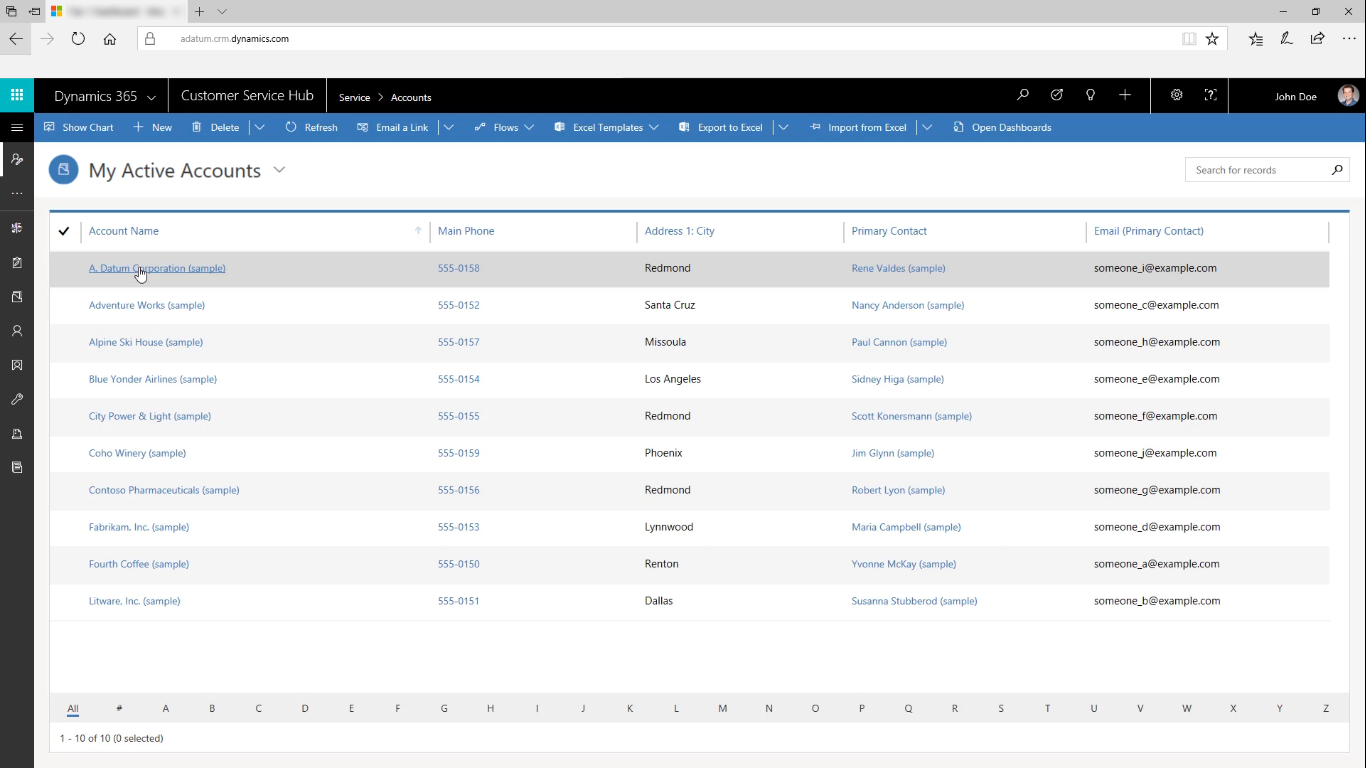
6. Power Automate Integration
Native Power Automate flows that react to SLA events, like raising cases and sending out alerts for warnings or breaches, are supported by Dynamics 365. This automation guards against lapses of SLA compliance in Dynamics 365 and guarantees prompt actions.
7. Entitlements and Tiered Service
Entitlements enforce customised support for each customer tier, such as premium or standard, by connecting customer service levels to SLAs. This guarantees that SLA expectations for various customer segments are appropriately managed and aligned.
8. Unified Routing & Queue Management
By intelligently allocating cases to agents according to their workload, skill set, and availability, the system makes sure that SLAs for urgent or high-priority cases are met. Moreover, it lessens misrouting for quicker resolution.
9. Knowledge Base and AI Recommendations
AI-powered article recommendations and integrated knowledge management enable agents to handle cases with speed and accuracy, lowering the risk of SLA breaches and increasing first-contact resolution rates.
10. Agent Productivity Tools & Multichannel Support
Agents can handle cases more effectively with features like productivity panels, timeline history, multi-session views, and omnichannel integration (voice, chat, email, and social media). SLA adherence is directly impacted by multitasking ability and rapid information access.
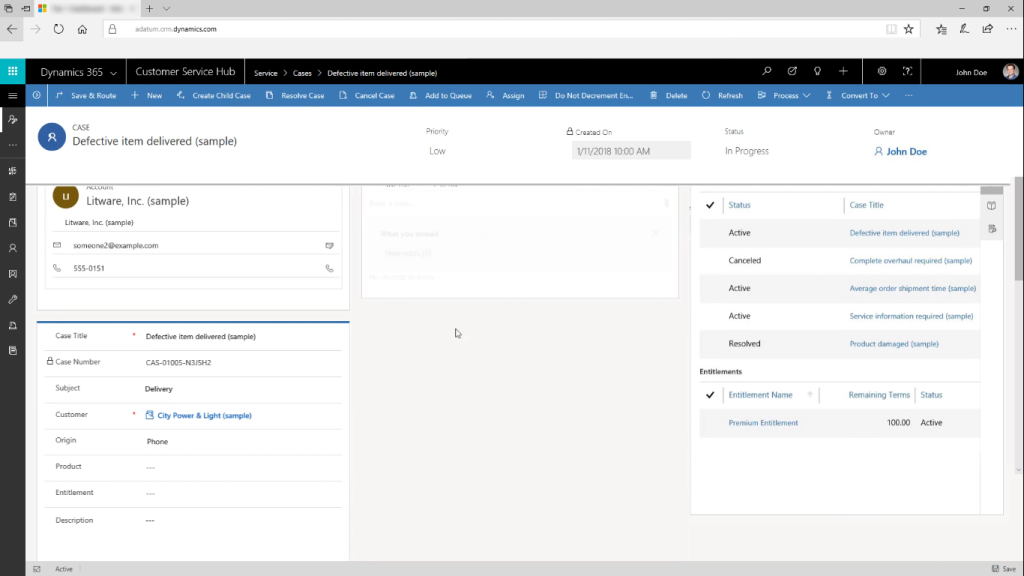
Best Practices for Australian Implementations
While you have the best features to improve SLAs, you need the best Dynamics 365 Customer Service Implementation practices too:
- Define SLAs tailored to market expectations: Set response times (e.g., 2-hour vs. 24-hour), distinguish between enterprise and SME support tiers, and adjust resolution goals appropriately.
- Pause SLA timers for non‑working intervals: Stop SLA calculations on weekends and public holidays to take support hours into account in order to prevent unfair breach statistics.
- Use dashboards for continuous monitoring: Create dashboards that are tailored to Australian metrics and time zones in order to spot hotspots or agents that are about to violate SLAs.
- Automate escalation paths: Include alert flows that alert team leads or supervisors when SLAs reach thresholds or warning zones.
- Train agents on timer controls and workflows: Ensure that all team members can read timer indicators, understand SLA thresholds, and respond to system alerts or prompts.
Conclusion
Australian businesses can meet and surpass SLA expectations by using the full range of Dynamics 365 Customer Service Hub, which includes advanced prioritisation, timer controls, SLA automation, and Copilot-driven insights.
The outcome? Improved team performance, increased consumer trust, and a competitive advantage in the marketplace.
Looking for better SLA automation with Dynamics 365? Let the DHRP take the wheel.
FAQs
Dynamics 365 Customer Service Hub improves SLA compliance through automated tracking, timely reminders, and real-time dashboards. It enables service teams to monitor cases closely, prioritise urgent issues, and ensure resolution within agreed timelines, enhancing overall customer satisfaction and performance.
Key tools for SLA tracking include SLA KPIs, countdown timers, interactive dashboards, and case timelines. These provide visibility into service progress, send alerts for approaching deadlines, and help agents focus on meeting commitments efficiently while maintaining compliance with agreed SLAs.
SLA escalations in Customer Service Hub are managed through automated workflows and alerts. When deadlines approach or breach, escalation rules trigger notifications to supervisors, enabling prompt intervention to resolve cases quickly, minimise breaches, and maintain strong SLA compliance rates.































































































